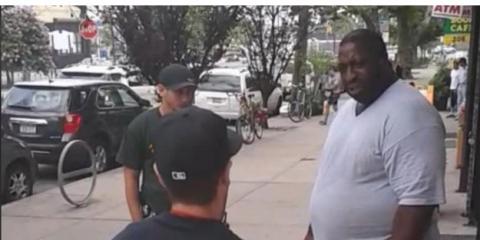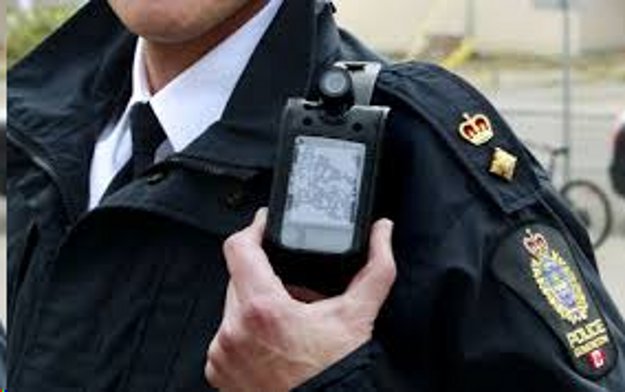Would Body Cameras Have Made a Difference in the Eric Garner Case?

From The Root and republished by our content partner New America Media:
"I can't believe that in the 21st century in the United States of America, we can't get a simple indictment for a murder of a man that was caught on videotape."
That's what Rep. Yvette Clarke (D-N.Y.) told The Root in the wake of a Staten Island, N.Y., grand jury's return of no indictment Wednesday against police Officer Daniel Pantaleo in the choking death of Eric Garner.
And it comes the same week President Barack Obama asked Congress to approve $263 million for police body cameras and training. The $75 million for 50,000 body cameras for police has been a primary focus of what many hope is a solution to police brutality.
But with a partisan fight under way over the president's immigration executive order, there's a real question about whether Congress will take action on his proposal. And another question: Will video matter? If a cop can't be indicted for choking a man to death on a city street, then under what circumstances would that cop be indicted?
Garner was begging for his life and repeatedly said, "I can't breathe" when Pantaleo held him in a chokehold that even New York City Police Commissioner William Bratton called "disturbing" and characterized as a violation of police procedure. And even with all of it caught on video, there was no indictment.
Which has prompted some elected officials who spoke with The Root to pinpoint the question of whether cameras are the solution.
"What good is a body camera? A body camera is supposed to be utilized so you can see what facts took place. So in effect we had a body camera here; we see it all," said Rep. Gregory Meeks (D-N.Y.).
"It brings into question whether body cameras will make any difference. The whole incident was on camera, but if prosecutors mishandled the presentation of the charges to the grand jury, you come up with no indictment," said Rep. Bennie Thompson (D-Miss.). "Given what's happened in Ferguson and the tenor of where I see a lot of people in this country, I'm not surprised" at the outcome, he added.
"When you have an apparent felonious action on videotape, someone engaging in an illegal choke hold that causes someone's death, it's very difficult to understand how there's not an indictment, and not at least probable cause," said Rep. Jerrold Nadler (D-N.Y.).
The timing of the grand jury nonindictment and the body-camera issue could not be more relevant. Not only did President Obama focus on the issue earlier this week, but body cameras will soon be in widespread use by the largest police department in the country. Starting this weekend, 50 NYPD officers will be wearing body cameras. But the program will expand to 35,000 officers after a three-month trial period.

Body cameras for the New York City Police Department came as the result of a judicial mandate stemming from a lawsuit over the city's massive stop-and-frisk program targeting young African-American and Latino men for more than a decade. This follows trial programs in several police departments that have instituted the use of body cameras, with some positive results.
But even though technology and the prevalence of mobile phones has opened a window on day-to-day police activity, another piece of the puzzle that leads to cops actually being held accountable for their actions is missing. Because of the often close relationships between prosecutors and police, indictments are hard to get, even with video evidence.
"Local prosecutors should not be presenting in police-related deaths. Prosecutors and police are bedfellows, they're buddies," said attorney Midwin Charles on NewsOne Now with Roland Martin.
And America leads industrialized nations in police killings. An average of more than 400 people a year are killed at the hands of police.
Right now members of Congress are strategizing in an effort to figure out what to do next after two weeks of frustrating news in Garner's case and the Michael Brown case in Ferguson, Mo. Many are angry.
"I'm struggling because I'm also the father of two African-American boys, and I don't know what to say to them about what's happening in this country right now," said Rep. Hakeem Jeffries (D-N.Y.).
Author Bio:
Lauren Victoria Burke is a Washington, D.C.-based political reporter who writes the Crew of 42 blog. Follow her on Twitter.
From The Root and republished by our content partner New America Media































































































































































































































































































































